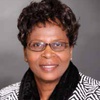Member of the KwaZulu-Natal Provincial Legislature

Nonhlanhla Khoza was born in 1959 in Springvale, Ixopo on the Southern part of KwaZulu-Natal province. Khoza participated in student activism during The 1976 Soweto uprisings. She went to Pholela High School. After completing her matric, Mrs Khoza registered for Primary Teachers Diploma with Mpumalanga College of Education. Her studies were disrupted due to her penchant for political activism. However, she managed to pursue teaching while she continued with the work of the ANC.
Mrs Khoza played many responsibilities within the liberation movement since the unbanning, including being a Voting District Coordinator, ANC Branch Executive Committee (BEC) member, ANCWL Branch Chairperson from 1994 to 1999. MEC Khoza was co-opted to the ANCWL Regional Executive in 1999 of the then East Griqualand, now known as Harry Gwala Region.
She furthered her studies with the University of South Africa and obtained an Adult Basic Education and Training (ABET) Practitioner Certificate in 1999 and a Diploma in ABET in 2001. Some of her other qualifications include a Councillor Development Programme from Vantage in 2003, AGT and University of Zululand in 2009, Local Government Councillor Practice Certificate in 2013, Advanced Project Management from Damelin Management School in 2017 and the Advanced Governance Public Leadership Certificate from the University of Witwatersrand.
In 2000, the ANC deployed Mrs Khoza as a Proportional Representative Councillor for Ixopo, now known as Ubuhlebezwe Local MunicipalityFrom 2001, she was elected as the chairperson of the ANCWL Regional Secretary for two terms. From 2006 she led as the ANCWL Regional Chairperson before being elected to the provincial structure in 2008 as Provincial Secretary, a position she served for two convective terms. She was the ANCWL KZN Provincial Chairperson following her election in 2017. Currently, she is serving as the MEC for Social Development.
Read more here.
African National Congress (ANC)
Not associated with any constituency offices
060 960 2226
083 282 3060
033 341 9600
lusanda.maduna@kznsocdev.gov.za
Fisani.Shabalala@kznsocdev.gov.za
KwaZulu-Natal
Member of the Executive Committee: Social Development
since 27th May 2019
Member at KwaZulu-Natal Provincial Legislature (Provincial-Legislature)
since 22nd May 2019
Member at African National Congress (ANC) (Party)
23rd Candidate at African National Congress Provincial KwaZulu-Natal Election List 2019 (Election List)
from 23rd April 2019 until 8th May 2019
Member at KwaZulu-Natal Provincial Legislature (Provincial-Legislature)
from 21st May 2014 until 7th May 2019
Member at SCOPA Committee (Kwazulu-Natal-Provincial-Legislature-Committee)
until 2nd May 2019
Member-elect at KwaZulu-Natal Provincial Legislature (Provincial-Legislature)
from 16th May 2014 until 21st May 2014
24th Candidate at African National Congress Provincial KwaZulu-Natal Election List 2014 (Election List)
from 22nd April 2014 until 7th May 2014
2023 committee attendance as mp
0% attendance rate (0 of 1 )
DISCLAIMER: This information has been obtained via the Parliamentary Monitoring Group. PMG makes every effort to compile reliable and comprehensive information, but does not claim that the data is 100% accurate and complete.
Committee meetings are planned events where real-world impactful work happens such as law-making, oversight and public participation - which are all cornerstones of the work our MPs do. Although often citizens focus on the public debate taking place in main chambers, the majority of MPs' time is spent working within committees. Here is a place to see what your committee is saying.
12 Dec 2016
Dr M Khoza (ANC) concurred with the Chairperson, adding that the SABC was in contravention of section 55(2) of the ...
Ms N Khoza (ANC, KwaZulu-Natal) understood that there were resolutions from previous roundtable discussions, and wanted to get those, to ...
Ms N Khoza (ANC, KwaZulu-Natal) understood that there were resolutions from previous roundtable discussions, and wanted to get those, to ...
Written questions and feedback are essential tools used by MPs for oversight and hold the executive accountable. This oversight mechanism allows MPs’ to extract detailed information that would normally be difficult to comprehend through oral engagement. You can see the questions that your MPs are asking here.
No questions found
Plenary sessions are forums that have been created for the purpose of public debate and decision-making. This mechanism is used to convey the messages of our MPs within main chambers on important decisions, like how they vote.
No appearances found